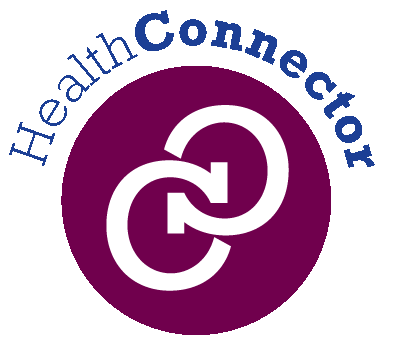The Health Connector Authority Protesting Too Much
In FY2011, the year prior to passage of the Affordable Care Act, the administrative budget of the Massachusetts Health Connector Authority was $29 million. By FY2013, while the Connector Authority struggled to implement its change to ACA, its budget had risen to $55 million. By FY2014, it had risen to $118 million. In FY2015, its budget is $98 million. These whopping annual increases in administrative expenditures have paid for converting to the new Affordable Care Act system.
Pioneer Institute issued a report today adding up these and all other administrative costs of converting from our pre-ACA connector system, stating “there has been little transparency about the full taxpayer cost of the state-based exchange. Estimates often have been released piecemeal, and they never examine the full cost of the project across multiple agencies involved in the work. As a result the public is unaware of the total expense to both federal and state taxpayers.”
[quote align=”right” color=”#999999″]Josh Archambault’s policy paper isn’t about philosophy but about implementation, and more particularly, about dollars wasted by flawed implementation. It is about the lack of transparency in reporting the all-in cost of re-engineering a system here in Massachusetts that was working well and spending hundreds of millions of dollars to do so.[/quote]
The lion’s share of the huge Connector Authority administrative cost increases are attributable to Massachusetts’ decision to build its own custom-made system instead of simply signing up with the federal exchange, as half of the states have done.
If you listen to the response of Governor Patrick’s administration to the report, you’d think they’d been ice-bucketed without consent.
The big take-away for me is that the administration doesn’t like Pioneer including in its total cost analysis the federally reimbursed costs of the ACA implementation. Pioneer’s analysis unambiguously states that the report represents an “accounting of the money that has been committed to the project so far, both from the state and federal governments.” Nothing could be clearer.
According to the Connector Authority, it is grossly unfair and politically motivated for Pioneer to lump the federally reimbursable costs in its analysis.
They’ve got to be kidding.
When the Connector Authority accounts for the cost of implementing the Affordable Care Act, it believes that it need not count its own huge administrative cost increases in the total because the federal government will reimburse Massachusetts for a large percentage of them. The governor says that Pioneer Institute is wrong to characterize them as expenses, calling it “a spurious charge” to do so.
What the Connector Authority officials and the Governor disregard is that the federal government reimbursement for the ACA roll-out is coming from a new involuntarily tax on insurance plans that citizens of Massachusetts and other states are being required to pay, adding up to approximately $260 per family health insurance plan in 2014, and rising to $450 per family plan in 2018, on employer-sponsored health coverage to fund the ACA. In addition, Massachusetts citizens and businesses are also paying for the new medical device tax, pharmaceutical tax, and payroll tax.
Thus the source of the so-called federal reimbursement is us. The citizens of Massachusetts and other states are paying for these huge administrative budget increases through these new taxes. The fact that the taxes pass through the hands of the federal government before returning to pay for the Connector Authority’s huge administrative cost increases doesn’t change the fact that the expenses have been incurred. That is why Pioneer Institute has reported a total cost and why the administration is apparently frustrated that it has done so. Leaving costs out of the analysis because of the federal government tax pass-through, which is what the administration would like to do for public relations purposes, is to mask the real administrative cost of Massachusetts’ conversion to the ACA.
Another red herring in the Connector Authority’s and the Governor’s response to the Pioneer report is that the report reflects an underlying philosophical objection to the ACA.
I for one am a strong supporter of the ACA and believe that efforts by Congress and the President to make health insurance available to 35 million uninsured Americans was long-overdue. Josh Archambault’s policy paper isn’t about philosophy but about implementation, and more particularly, about dollars wasted by flawed implementation. It is about the lack of transparency in reporting the all-in cost of re-engineering a system here in Massachusetts that was working well and spending hundreds of millions of dollars to do so.
My other take-away is that the Connector Authority doesn’t like Pioneer questioning how much money has been wasted because of the failed implementation of the new system. When Massachusetts decided to terminate its IT contractor and missed its federal deadline dates, the Connector Authority began hand-processing all applications and automatically granting temporary Medicaid eligibility to all applicants. How much money has this cost Massachusetts? Great question, and one that the Connector Authority has been mum about. Since the Connector Authority’s program is intended to provide sliding-scale health insurance reimbursement for people who don’t qualify for Medicaid, its decision to grant full Medicaid approval to every applicant has meant that it has not been collecting the customers share of the bill, which can been considerable. It also means that applicants who do not qualify are receiving Medicaid coverage.
Bottom line: The administration doth protest too much. If it takes entities like Pioneer Institute to add up the total cost of the Connector Authority’s ACA conversion, isn’t there something lacking in the transparency department at the Connector Authority? These are public dollars, let the public have all the facts.



